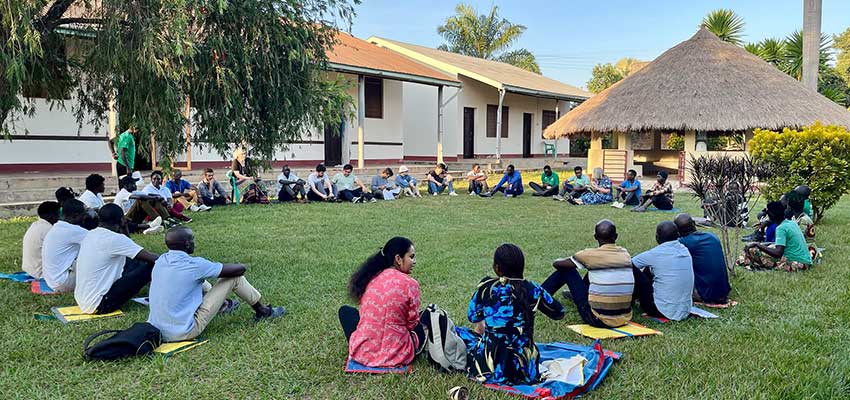
A little after sunrise each day, before the tools came out and the whiteboards filled, we gathered in a quiet circle. No phones. No PowerPoints. Just people—refugees and researchers, engineers and elders, artists and students—each offering a word, an appreciation, a game or a silence to begin the day. This was the 2025 Co-Creation Summit in Arua, Uganda. But more than a summit, it was a practice in being present.
This spring, I made my first ever trip to the wonderful continent of Africa - I came to Northern Uganda in East Africa through MIT D-Lab’s class EC.750: Humanitarian Innovation, led by the ever-inspiring Amy Smith, with co-instructors Martha Thompson and Eva Kaplan, and trip mentor Nick Parisi.
The summit was hosted in partnership with Kulika Uganda and the Youth Social Advocacy Team (YSAT) and other local NGOs, with support from KOICA and Malteser International. Bringing together refugee and host community innovators, local NGOs, international practitioners, and MIT students, the summit served as a living laboratory of collaboration.
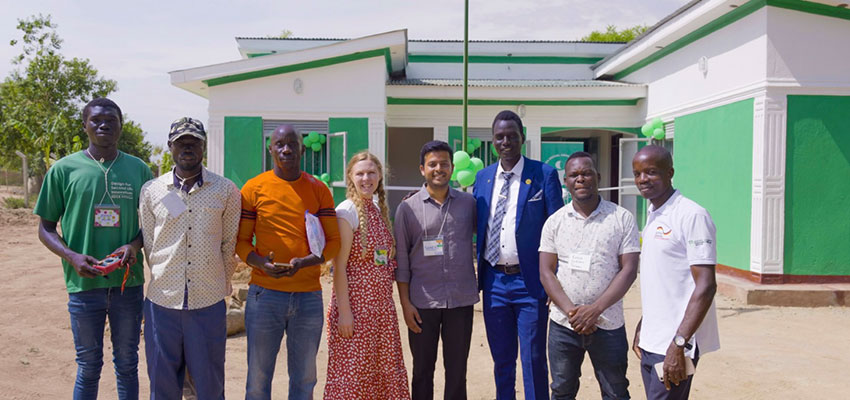
Uganda, and specifically the Arua and Rhino Camp region, has been a site of extraordinary resilience. Refugees and host community members alike have been responding to precarity not just with survival, but also with creativity. These were not "beneficiaries" waiting for help—they were engineers, entrepreneurs, and leaders.
Designing with, not for
Together with my D-Lab classmate Aletha and team members from Rhino Camp, we worked on a community-proposed idea: a Motorbike Theft Alarm System. In regions like Arua, mobility means livelihood—especially for boda-boda drivers—motorcycle taxi drivers who ferry passengers and goods across towns and settlements—whose motorbikes are often tied to their means of survival. A stolen motorbike is not just a lost asset—it’s a lost future.
Our project goal was to develop a simple, vibration-based alert device to deter theft and give riders a sense of security. Quickly, we realized this project wasn't only about the device. It was about trust, adoption, and belonging.
Throughout the summit, we designed and built prototypes, tested them in the field, gathered local feedback, calculated production margins, and explored how to localize both the production and the outreach. The end product? A functional prototype—but more importantly, a community-backed intervention.
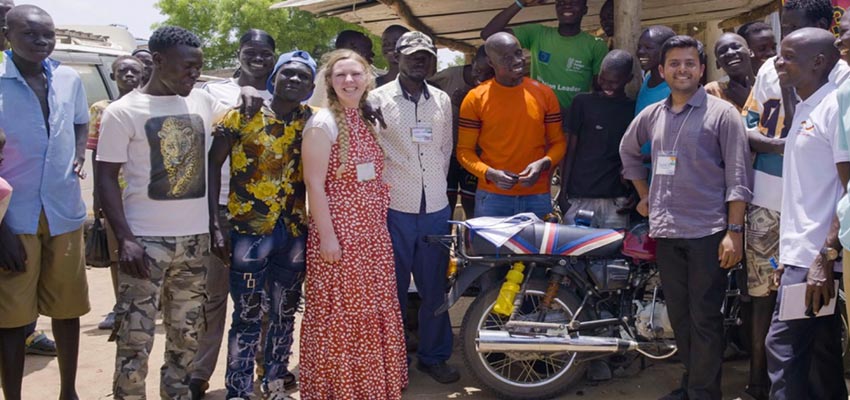
Innovation feels like this
The summit didn’t only unfold in design labs. It happened over shared meals, on paint-splattered tarps, under mango trees, in impromptu evening jam sessions. There was the talent show, where laughter erased language barriers. There was the game night, where every person left their mark—literal and metaphorical. There was dancing, storytelling, debating, and building - all under the same sky.
Come to learn, not to teach
Coming from a remote part of India, I’ve long carried a sense of closeness to under-resourced communities. Uganda was no different. The communities we worked with were not “waiting” to be saved. They were already solving—with fewer resources and deeper wisdom than most boardrooms hold.
This trip confirmed what I’ve always believed: those who live with the problems must lead the solutions. What they often lack is not creativity or capacity—but platforms, power, and partnership.
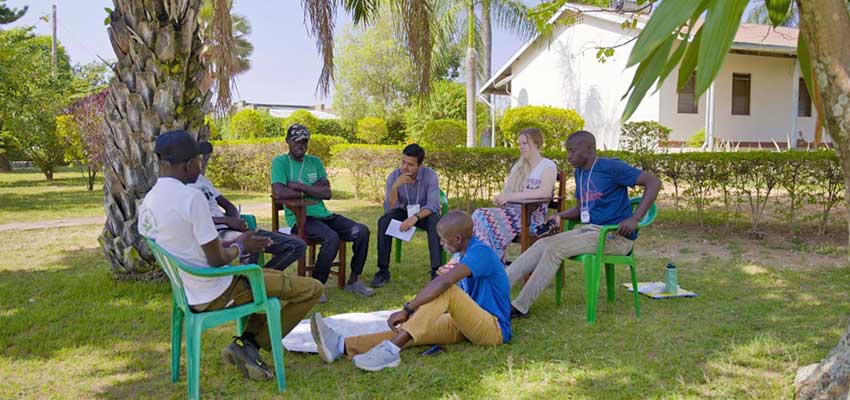
Design is not neutral
In every wire we soldered, in every assumption we unpacked, I was reminded: Design is not apolitical. We bring our worldviews into every decision—what problem we choose to solve, who we involve, how we define success. The summit forced me to strip back many assumptions I had about “need,” “efficiency,” and “impact.”
Slow work is deep work
Western models often reward speed and scale. But in Uganda, I learned the value of slowness—the sacred act of sitting in a circle, listening to stories, and letting relationships form the foundation of innovation. Co-creation is not the quickest path to product—but it is the surest path to justice. The summit also reinforced for me the idea to embrace the messiness of real-world problem-solving. Plan and prepare, yes, but be ready to go off-road—and keep going. Whether it was refining sketches late into the night, adapting to limited materials, navigating language barriers, or shifting plans based on community feedback, van breakdowns or road closures - every step demanded flexibility and resilience.
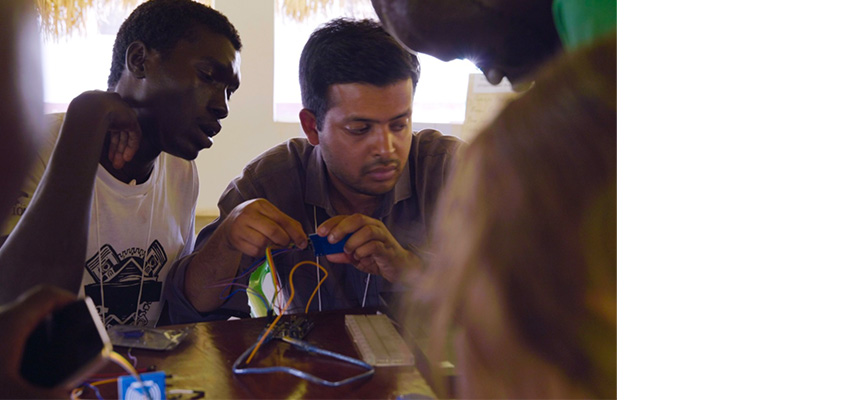
You don’t need to be the hero
I’ve long carried both pride and pain in wanting to "fix" systems. But this trip reminded me that I am not the protagonist. The boda-boda riders who shaped our feedback loop, the local youth groups who tested our alarm system, the refugee engineers who had already built dozens of tools before we even arrived—they are the real experts. And, no amount of academic training can replicate the insights that come from living a problem day in and day out.
We saw incredible innovations made from scrap parts. We met community members with more engineering intuition than many with formal degrees. We witnessed refugee-led initiatives solving hyper-local problems with creativity and compassion. This experience reaffirmed that those who live with the problem are best positioned to solve it. Our job—as students, as global citizens—is to support, co-create, and when needed, get out of the way.
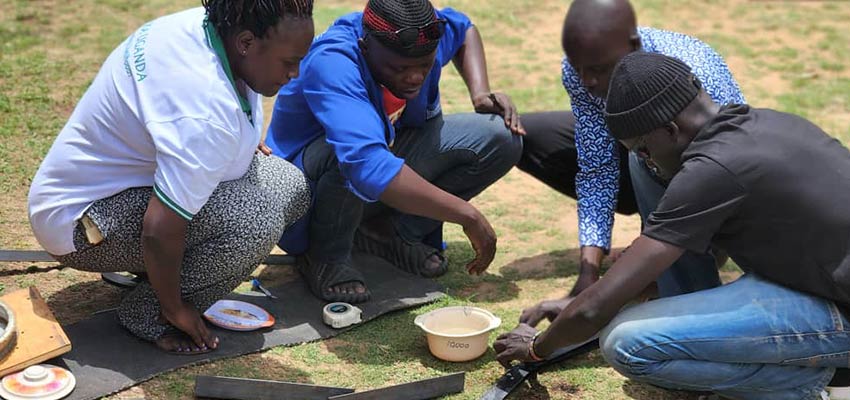
We often talk about “design for development” or “tech for good,” but the summit pushed me to think about something else: design for trust. Our theft alarm is not just a device—it’s a conversation starter, a tool for community trust-building, and maybe, just maybe, a small deterrent to a much larger issue of precarity.
And one last thing
I am deeply grateful to our instructors—Amy, Martha, and Nick—for their vision, mentorship, and warmth. Their leadership created a culture of co-creation that was respectful, rigorous, and joyful.
And to the wonderful people we met in Uganda: thank you. Thank you for your openness, for letting us in, for teaching us what the world rarely sees. You welcomed us not as visitors, but as partners. The life, culture, and spirit of Uganda will stay with me always.
I often say I don’t believe in short-term engagements. This summit didn’t just reaffirm that—it made it non-negotiable. I hope to return to Arua. Not to "finish" a project, but to continue walking alongside a community I now consider a part of my own story.
And if there’s one insight I carry forward, it’s this: Innovation begins when we listen. It grows when we build with. And it lasts when we belong.
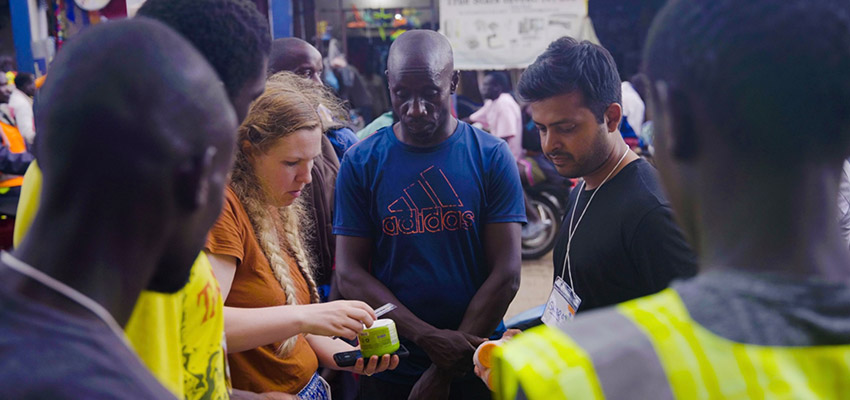
To everyone at the summit—refugee partners, local leaders, teammates, instructors, artists, chefs, dancers—thank you. You didn’t just share space. You shared yourselves. And I will carry that with me for a long time.
And yes, life in East Africa is vibrant. The music, the food, the colors, the joy—everything pulsates with energy. It’s impossible to come back unchanged.
About the author
Swaraj Priyadarshi, a master’s degree candidate at Harvard University, is the second-in-command at Dexterity Global, a national organization powering the next generation of leaders for India through educational opportunities and training. Swaraj received his bachelor’s degree from Tufts University in the United States on a full scholarship. During his time as the second-in-command at Dexterity, the organization has reached more than 7 million students, its graduates and fellows have received more than 2 billion INR in scholarships and the organization has been listed on Forbes 30 Under 30 and Rockefeller 100 Next Century Innovations list and invited to the White House and the Nobel Peace Prize ceremony. In 2019, Swaraj was one of three graduating seniors in the United States to receive the prestigious Samuel Huntington Public Service Award. In 2022, Swaraj was recognized as the Outstanding Educator of the Year by the University of Chicago. He’s the youngest recipient of the award in its history.
Related
Building community in Uganda: a Co-Creation Summit experience
Finding inspiration from co-creating in Arua, Uganda
More information
MIT D-Lab Humanitarian Innovation class

